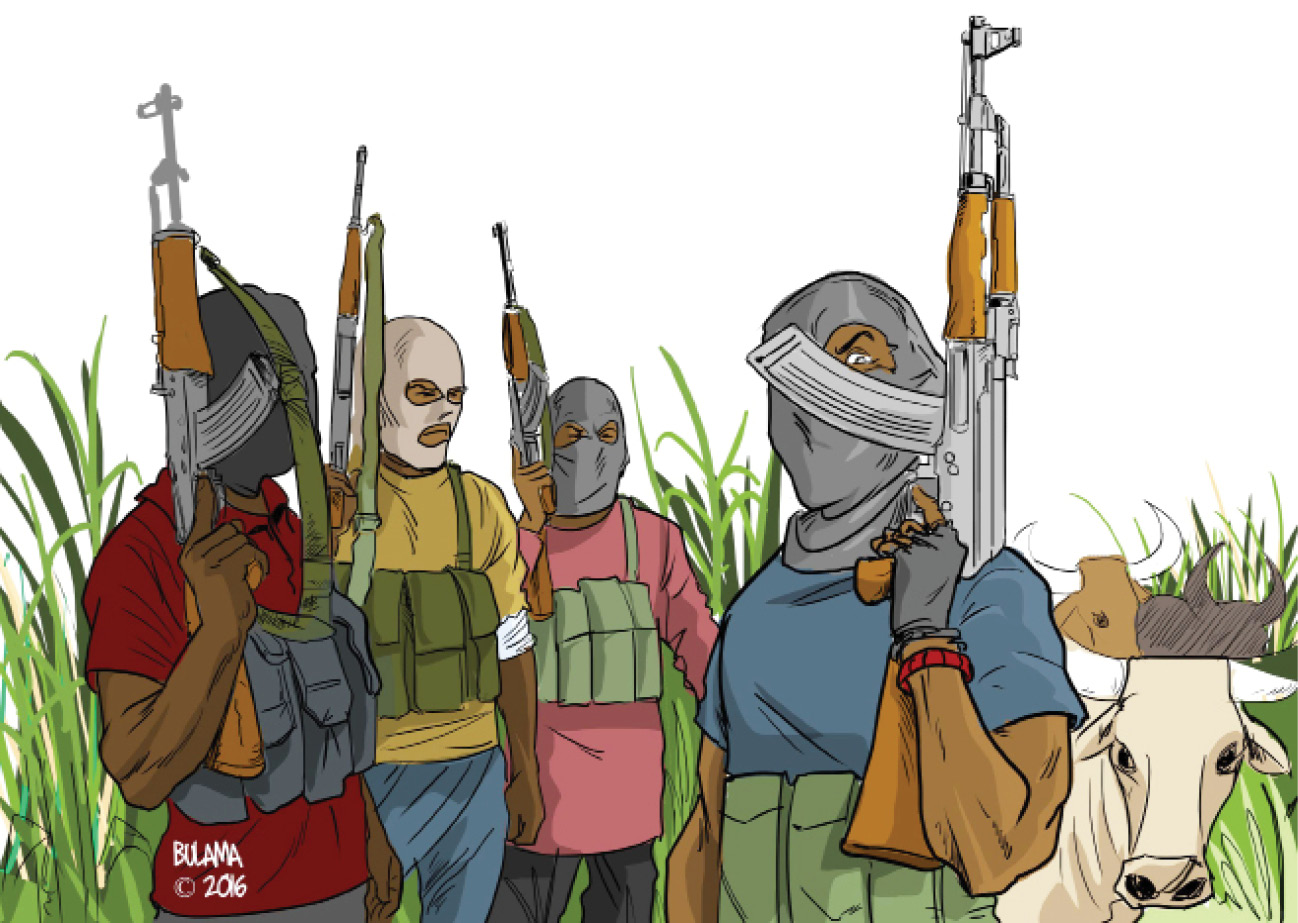The United States Federal Bureau of Investigation (FBI) and Homeland Security count their counter-terrorism achievements in the fact that since September 11, 2001, not many attacks by terrorists had succeeded on the American soil. Thanks to an effective intelligence gathering network! The water-tight network ran FBI agents out of business to the extent that in a celebrated case in 2008, an undercover agent joined Muslim congregation to constantly pray in a mosque, brought together three Muslim brothers from the Middle East, led them in discussions about hatred for America, took them through training on how to use lethal weapons, recorded every session of the exercises, and turned-in the videos to the FBI as evidence that the three Muslims had planned terror attacks on America. The evidence became the subject of a celebrated terrorism case of US vs Mohammed Amawi, Marvan El-Hindi, and Wassim Masloum in 2008. The three accused were convicted and would have paid a harsh penalty, but for the role of expert witness, Forensic linguist Roger Shuy, who reviewed the video evidence and argued that FBI agent Darren Griffin, an ex-Army Special Forces member, tricked the Muslims into making those confessions. Based on Roger Shuy’s report, the court revisited the case and let the three Muslims off the hook.
In America, this proactive case study demonstrates how seriously non-kinetic strategy is put in place to rid the country of terrorists. Without wielding guns on the street or in rural America, incidents of bombings by lone wolves or group of terrorists on American soil was reduced to the barest minimum. But in Nigeria, the reverse seems to be the case, as bandits’ intelligence network has led to escalation of attacks, wanton killings, frustrating counter-terrorism strategies by our police and military. The death of 62 civilians, local vigilantes, and 18 soldiers in Kebbi State recently, has been attributed to the activities of bandit informants. Usman Sani, the head of the “Yan Sa Kai” vigilante group in Kebbi, told journalists that his group had planned to attack bandits in the Sakaba area on Sunday night but someone tipped them off. The retired soldier said, “They laid in ambush, hid their motorcycles in the shrubs, circled us and opened fire from different directions.”
- ‘Global Terrorism Index rating for Nigeria, morale booster for troops’
- WHO plans summit to improve Nigeria’s primary healthcare sector
While government agencies tend to emphasise technology in intelligence gathering, bandits use the low hanging intelligence gathering method to inflict evil on us. That low-hanging method is human intelligence. In Sokoto State, the Commissioner for Security, Colonel Garba Moyi, recently revealed that over 2,000 informants for bandits were arrested in several Sokoto communities. In October 2021, a family was burnt alive by a mob in Kaduna State for allegedly providing intelligence information to bandits. In January last year, the Emir of Maru in Zamfara State attributed the lingering insecurity in the state, not just to the lethal weapons wielded by bandits, but to the activities of informants. “We are appealing to government and security agencies to take serious measures (in) addressing informants’ activities in the state. Most of the informants are within our communities, and they are known by people. They move freely in communities carrying out ugly activities unchecked. We want security agencies to concentrate and deal with them decisively,” he said.
What roles do nefarious informants play in frustrating the fight against terrorists? In many communities, informants betray their communities for blood money by providing kidnappers with information about individuals who have resources to pay if kidnapped. Living among their own people, informants know individuals with immediate and extended family members who could pay ransom, if their relations are grabbed by evil men. They provide information to criminal bandits and terrorists about the movement of troops in besieged communities, to ensure bandits don’t fall into the hands of security operatives. They run businesses for bandits, as commercial motorcyclists or taxi drivers or as POS operators to make cash available for fugitive bandits in rural locations. In return for their services, they are rewarded handsomely, some building houses, acquiring flashy cars from means of income that are not very visible, and maintaining suspicious lifestyles that make others envious of their ‘achievements’ in a very difficult and dangerous atmosphere.
The cash-spinning merchandise in information has made the fight against terrorists more complicated than it might have been imagined by architects of Nigeria’s security policy and strategies. It is evidence that government has failed to win over the people to its side in the battle. If communities that are victims of bandit attacks are infested with traitors who are ready to exchange the lives and properties of their family members and communities for cash, it means the country has entered into a hopeless stage in its counter-terrorism measures. In many societies that have won the battle against terrorists, a significant size of the population always aligns with government forces by providing intelligence information to security operatives, rather than the enemies. This is when it is apparent that government forces have the capacity to track bandits and defend the population. The situation in Nigeria seems to be the opposite.
Our predicament is not helped by allegations that security operatives rarely respond when provided with intelligence information by communities under siege. It is even alleged that even within the security command structure intelligence management is fundamentally compromised by elements who benefit from or have sympathy for terrorists. It beats the imagination how bandits with effrontery write to community leaders, demand for millions as ransom, threaten to destroy such community if the money is not paid, alarm is raised to security operatives and political leaders, but little or nothing would be done to frustrate the evil manoeuvre until bandits successfully extort ransom from the people and go on to enjoy their loot. Bandits would make good their threats to destroy communities that fail to pay ransom. Most times, security operatives claim they had no decisive operational orders in combat to tackle bandits, even if communities put distress calls across to them. This condition must be reversed. For failure to come to the aid of communities under threat, security operatives practically lose the confidence and even cooperation of the people.
In order to win the confidence of the people and frustrate the booming and money-spinning merchandise in information trafficking to bandits, it is now imperative for our security strategy to be extremely proactive in our forward operations. This could be done by creating a blanket cover for communities under siege by bandits through a semi-residency status for security forces in those locations. This could be strengthened by motorized patrol, carrying the battle to bandits’ hideouts with a view to snuffing them. Because we wait for bandits to attack, information trafficking is prosperous to the traitors of the communities. For instance, by now the military should have given the people of the North West confidence by ensuring a common blanket cover for the territory, leaving no ungoverned space for bandits to rest, strategize and operate. For failure to do so, bandits have been having a field day and initiative, snaking from Zamfara to Kebbi to Sokoto to Kaduna to Katsina and other areas, depending on the activities of our military forces. Without such blanket cover, communities are vulnerable to repeated onslaughts based on the quality and quantum of intelligence information from the subterranean network. Bandits have become a sort of Lord Mayor of our wilderness and ungoverned spaces.
To make information trafficking to bandits unsustainable for their network of informants the justice system must make a show of culprits by stiff punishment, akin to what is meted out to convicted terrorists, as a deterrent to others. If we allow bandits to continue to profit from information trafficking, then our conventional forces would have lost the initiative to protect our communities. And may have lost the initiative forever. From the American example given above, government should have an upper-hand in intelligence gathering to counter terrorism, but in Nigeria, the reverse is regrettably the case. This issue must be addressed holistically.

 Join Daily Trust WhatsApp Community For Quick Access To News and Happenings Around You.
Join Daily Trust WhatsApp Community For Quick Access To News and Happenings Around You.

